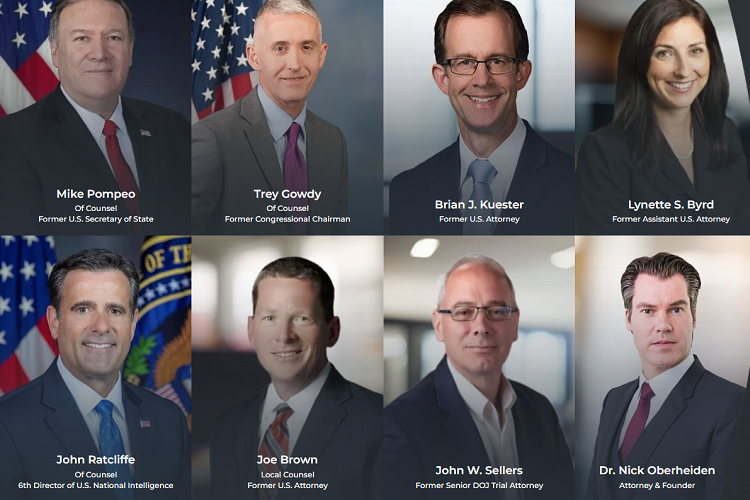Whistleblowers play a very important role in public safety and protection, offering valuable insights from some of the most prominent sectors that could cause threats.
The United States Department of Health and Human Services (HHS) does incredibly important work in regard to the healthcare industry and the way it interacts with the public.
Overseeing Medicare and other national health insurance, as well as working within HHS-registered practices, staff across this department are integral to the public. This care for the public is a commitment and one that should not end when something occurs federally within this department that could put the nation at risk.
Blowing the whistle in any department can be a risk, but it is often carefully calculated and necessary to maintain your commitment to protecting the public.
Much like how the HHS cannot operate without the support of its staff, whistleblowers cannot share their insights without protection.
Why Blow the Whistle on the HHS?
Whistleblowers bring a lot of information to light that may have otherwise gone unknown by the greater public. By working within the HHS, whether this is within healthcare insurance or HHS-registered practices, staff have a greater understanding of the federal options within this department than the public can ever understand.
This, of course, allows for great care to be done in every service offered to the public, but it can also be a prime spot for highlighting signs of corruption or other issues.
Thanks to the work of whistleblowers, internal information can be brought into public knowledge to expose issues of fraud, corruption, and waste. By bringing this kind of insider knowledge into public spaces, the correct procedures have to be done and justice can be serviced – ensuring the public is protected and the department can operate as expected once more.
Due to the severity of issues that can be exposed by whistleblowers, this is not a role people take lightly, especially within such an essential department as the HHS.
However, some information simply cannot remain hidden, and it is thanks to the bravery of whistleblowers that the public can see justice. Blowing the whistle is required in many kinds of cases, such as those involving:
- Abuse of authority or resources
- Gross waste of HHS funds, resources, or information
- Censorship of scientific research
- Violation of grants and contracts within the department
- Risks to public health and safety
If you have evidence or qualifying information regarding these concerns, as well as other areas of risk to public safety within the HHS, then you may be considered a whistleblower.
As a whistleblower, you qualify for certain levels of protection and require legal aid during the proceedings. This can help you bring the information to light, as well as protect your own interests during the investigation.
What Protection Can I Get for Blowing the Whistle?
Whistleblowers require specific protection and legal support when they bring qualifying information to light. Due to the often sensitive nature of these federal cases, as well as the kind of case that can follow, simply hiring any lawyer will not do.
Instead, protection needs to come from those with specialist experience in the law, such as an Oberheiden P.C. whistleblower attorney for HHS.

These whistleblower attorneys have experience in the federal industry, as well as offering particular protection for whistleblowers within the HHS – or any other federal department.
They can offer the necessary protection and legal support to those with qualifying information, helping to bring the corruption to light, exposing the internal workings of the department, and protecting the public from any misconduct.
If you are unsure of whether the information you have qualifies as whistleblowing, these attorneys can still help. They will work with you to determine whether this information is regarded as blowing the whistle on the HHS and, therefore, guide you through the next steps.
Alternatively, they can offer guidance on your next steps if you do not qualify for this kind of support. There are some cases where you may not be considered an HHS whistleblower and, therefore, cannot get specific support from these attorneys, but this does not mean it is the end of the road for you.
With their many years of experience and incredible team, built up of lawyers and former congressmen, Oberheiden P.C. can guide you through the process when handling sensitive federal information. Like those within the HHS who need to blow the whistle, these attorneys are also concerned with public safety and will ensure this is at the top of their priority list with every service.
Why Whistleblowers are So Important in the US
Whistleblowers must continue to come forward within the HHS to protect the public and ensure proper management of resources.
As with any federal department, the HHS has an obligation to the public and has established requirements to ensure this is done within all sectors. However, as we have seen throughout time, these requirements are not always met, and this can cause a ripple effect of issues throughout the department.
Whether the concern relates to research, public funds, or other resources within the HHS, it is vital that the proper protocol is performed at all times and any corruption is reported.
Both federal and private sector employees, in most cases, within the HHS can blow the whistle if they have qualifying information regarding the aforementioned cases. Corruption, fraud, and abuse are just some of the ways public resources can be mistreated, and this needs to be exposed by those within the department if they can offer evidence in support.
An HHS Whistleblower Attorney at Oberheiden P.C. is available to protect you from the minute you have the information, as well as throughout any following investigation that may occur.
With this kind of protection, it can be easier to speak up and expose the internal issues that may be at play within the HHS in order to protect the greater public as well as the overall integrity of US healthcare.



